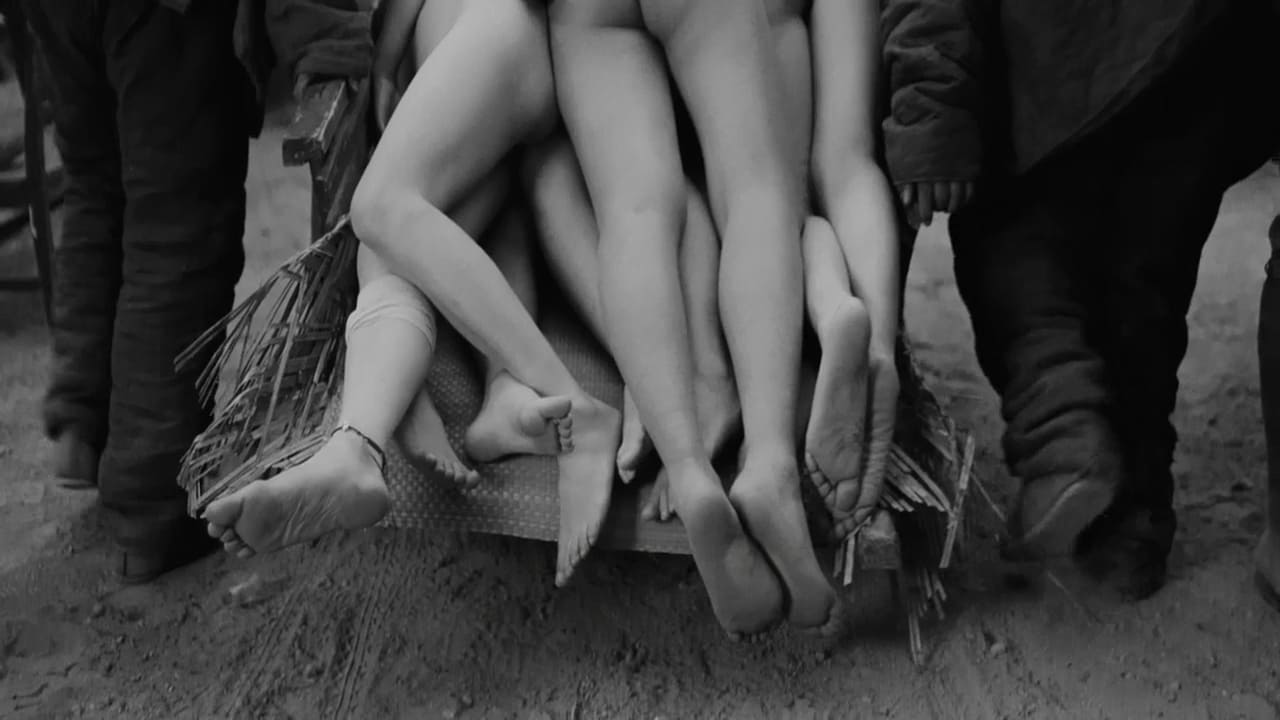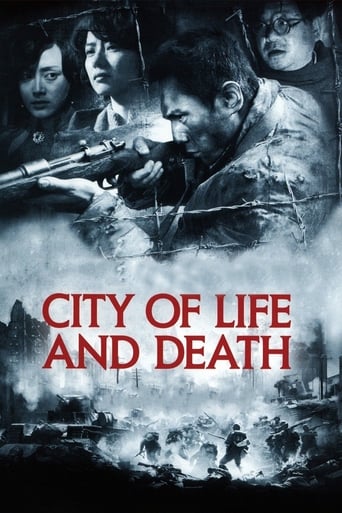

Film title: Nanking! Nanking Director: Chuan Lu Year of release: 2009 Before I saw the film "Nanking! Nanking", I have already watched some of the movies made back in the 80's/90's about the rape of Nanking. They are exploitation movies and never affected me or leave me with profound experience. I'm actually disgusted with them making such movies. Also most of the documentaries I watched never really do anything. But when I watched the movie "Nanking! Nanking!" directed by Chuan Lu, it really drained me emotionally. When I first time watched the movie in cinema, it shocked me. And I think Chuan Lu is a pretty courageous and a respected director. I need to explain the reason why he is a courageous and respected director. At the first of the film, the lens showed us broken fences of Nanking, and the city was full of the dense smoke. The images made audience feel repression. But it is just a beginning. When we move on with the film, we would find that there are just two colors for the film, black and white. Maybe most of the audiences will doubt that if there is a problem of the film. Why it is not in color. But audiences will agree with the color soon. There is no more other color can fit this history than black and white. It is one of the reasons that why I think Chuan Lu is a courageous director. He used the black and white to explain the war. It is pallid and helpless. We can really feel the depressive emotion, which was brought from the color of the movie. And the most difference between "Nanking! Nanking!" and other same theme movies is the position of the director. Most of the directors add their own emotion to their film, so that they try to put up the good side of Chinese soldiers into the film and forget the bad side. And they also vilify Japanese soldiers from everywhere in order to accuse Japan and vent their emotion. It is easy to lead audiences' emotion. But people always forget the real part. "Nanking! Nanking!" is the different one. Chuan Lu didn't use the Chinese soldiers or Chinese people as the mainline of the movie. He was talking about the rape of Nanking through a Japanese soldier's view. Maybe it was also not the real image of the event, but I can feel that it would be the image, which was the most close to the real. Chuan Lu is very audacious on this. He didn't stand on the position of Chinese people. He filmed the movie in neutrality. I also saw some comments of this movie online. Most people said that the description of Japanese soldiers was humanness in the movie, even though the movie showed the vulnerable side of Japanese soldiers. People cannot understand that with nation hatred. They think Japanese soldiers should be the totally devil in the rape of Nanking. So there were a lot of voice of censure on the comments of the film and the director. But in fact, we cannot lose our mind because of the nation hatred between China and Japan. We need to face the truth and we need to see the depth effects of the war. Of course, we can forget the nation hatred. But we also have to accept that Japanese armies are not the real devil. In this film, Chuan Lu tried to stand on a middle position to state the rape of Nanking. So we can feel that the whole movie is very repression but rationality. Chuan Lu is a courageous director, and he is also very respected. The movie stated the rape of Nanking. But it is not in order to lead off emotion of nation hatred. It is a warning to Chinese people, and also the whole world. It is not simply a movie for Chinese people to deepen their hates on Japanese; it is a movie for people all over the world to see, to experience and to explore what Japanese have done to Nanking in 1937, and what the war has bring to us. This movie was shot without hates without slants without sharp emotions. But the images always warn us that war is the real devil in the world. I can remember that when I came out from the cinema after the movie, the first feeling was that how good is the current world in peace. And I think that peace is the main theme of the movie, not hatred. And the movie has demonstrated the most powerful thing in the world: no matter Japanese admit the fault or not, we may forgive, but never forget.
... View MoreAstounding film. I'm still haunted by the masterful way the unblinking atrocities and the study of the human condition exist side by side in this film. It's not for the faint of heart, but for those who can make their way through the horror,there's much to take away from this film. Each character followed in this story fills a purpose. The opening is the actual occupation of Nanking, and it's just as unrelenting as Saving Private Ryan's D-Day sequence. Little dialogue, just war. The rest of the film chronicles the atrocities as it focuses on individuals. There are scenes in this film that I will take with me forever, like the best of films give you.
... View MoreThe Japanese killed my grandfather's brother in WW2 ,the Japanese have yet to apologies or even properly acknowledge The Japanese killed my grandfather's brother in WW2 ,the Japanese have yet to apologies or even properly acknowledge The Japanese killed my grandfather's brother in WW2 ,the Japanese have yet to apologies or even properly acknowledge The Japanese killed my grandfather's brother in WW2 ,the Japanese have yet to apologies or even properly acknowledge The Japanese killed my grandfather's brother in WW2 ,the Japanese have yet to apologies or even properly acknowledge The Japanese killed my grandfather's brother in WW2 ,the Japanese have yet to apologies or even properly acknowledge The Japanese killed my grandfather's brother in WW2 ,the Japanese have yet to apologies or even properly acknowledge
... View MoreThis grim and depressing black-and-white drama explores the Rape of Nanking and is told from the point of view of the oppressed Chinese trapped within the city (oh, and from the point of view of one of the occupying Japanese soldiers too, purely for balance). As a film, it occupies the same kind of gut-wrenching worthy territory as SCHINDLER'S LIST, depicting a series of increasingly harrowing events in which violence is meted out as a matter of normality.I always find such films hard to enjoy, and I hardly want to watch them again after sitting through them. Nevertheless, they exist purely to tell their story and to ensure that such pivotal moments in history are never forgotten.CITY OF LIFE AND DEATH gets everything right: the direction, which emulates a cinema verite style on occasion, is highly effective and the narrative consists of just the right scope. The acting, too, is of a high calibre and the ensuing drama is as gritty and disturbing as you'd expect given the subject matter; there's certainly no sugar coating here.
... View More